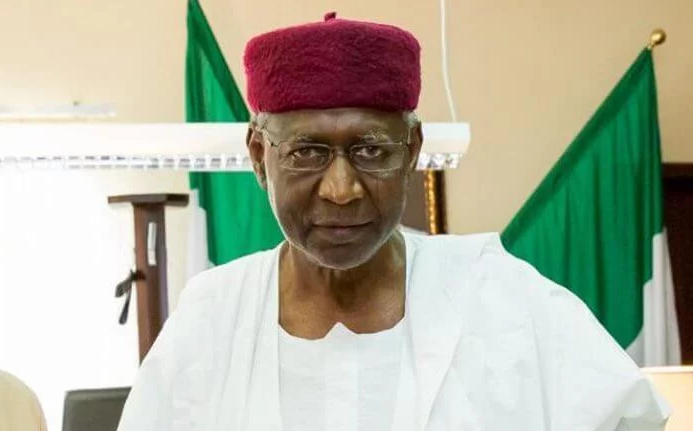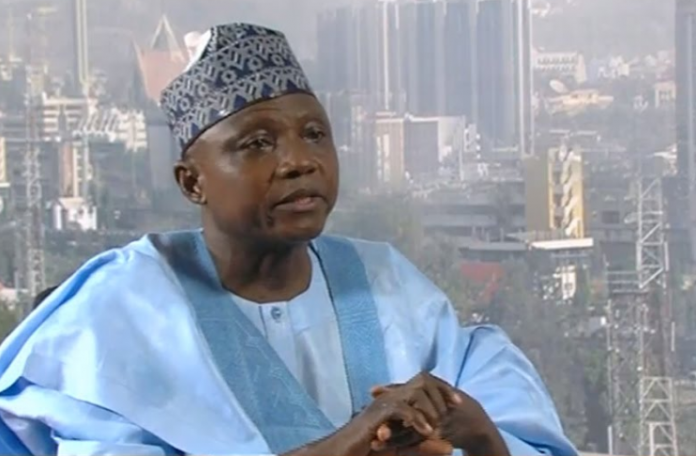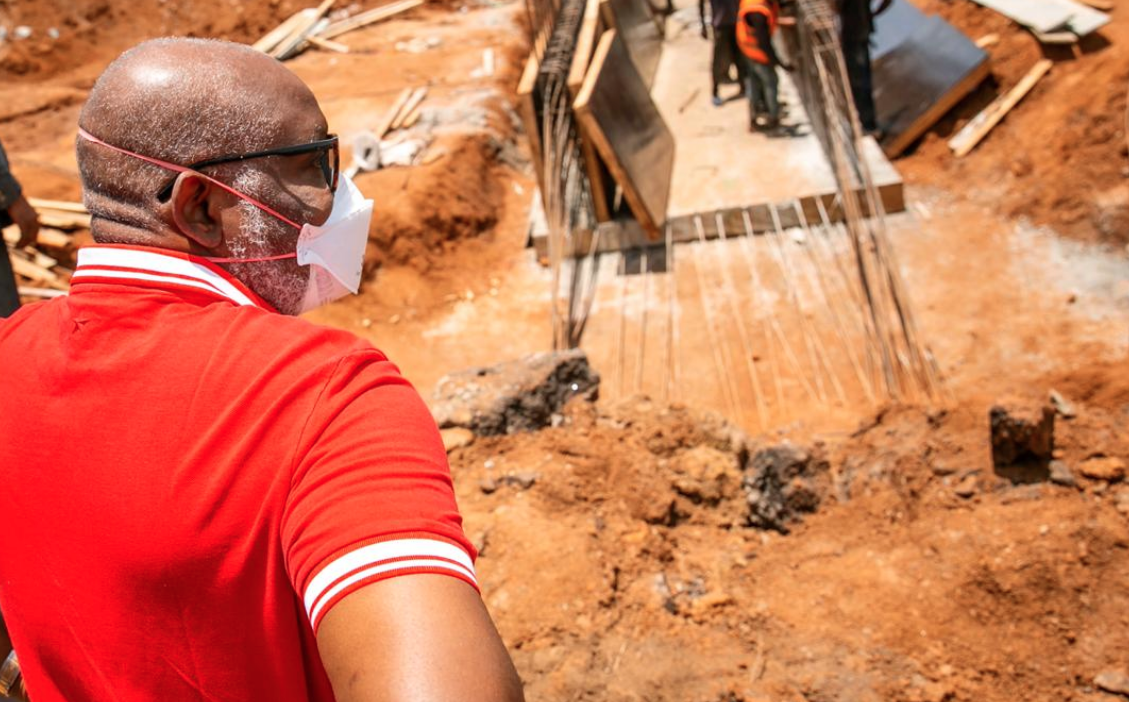Victor, a young man in his mid 20’s, is a furniture maker. Three weeks ago, he was making ends meet at Itedo, a popular suburb at Lekki-Ikate axis of Lagos state, where his workshop is. But with the lockdown ordered to limit the spread of coronavirus, the young man is literally caught in the middle of nowhere, finding it very difficult to survive.
Victor is among the hundreds of young people who line the streets, seeking alms since the lockdown began. On the day this reporter encountered him, he walked with a slight spring in his step. Dressed in a pair of jeans and a T-shirt that has been bleached colourless by the hot sun, he looked like a gang member in search of a prey to rob, ambush or put in harm’s way.
As he inched closer to where the reporter had parked to buy a few “essential items”, he spoke in very good English: “Madam, good afternoon. Please help me. I’m not a beggar but I’m forced to go about asking people for food and money just to feed and remain sane. Since this lockdown started, the little money I get from the work I do has stopped coming. There is hunger in the land. Even if it’s N50 you give me, I can buy myself ‘Gala’ (a popular Nigerian-made beef roll snack) to hold myself for the day.
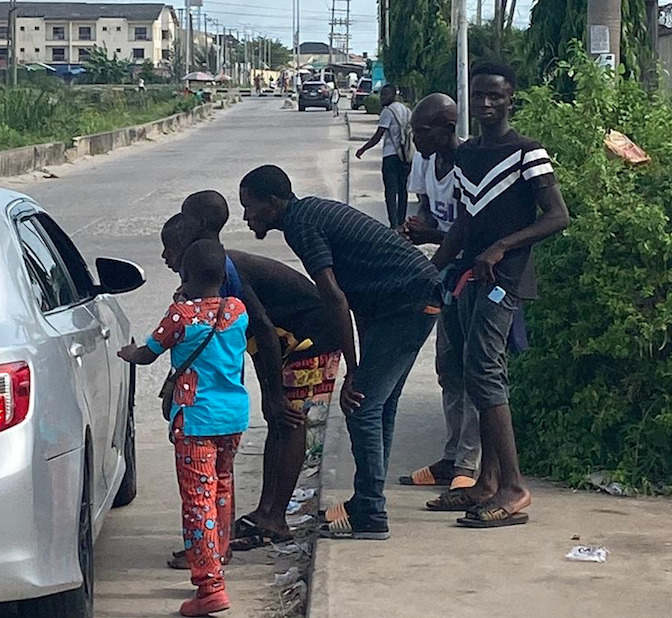
“Before now, we don’t need to ask anybody for money. We work at these business centres and make something everyday that we can use to eat. But now that there is lockdown, where will we get money to eat? Government did not share anything for us or even if they shared, we didn’t get anything. It’s one rich woman that usually comes around to give out foodstuffs. Only those who are lucky to be around when she is sharing benefit. I wonder how we will survive if this lockdown lasts longer.”
Advertisement
Victor is not alone on the streets of Lekki, a highbrow part of Lagos. There are groups of young persons found on major streets and corners of Lekki Phase One, Ikate and beyond. Their message is the same: “There is hunger in the land.”
No means of livelihood, no work, hence no free flow of daily wages. Most, if not all these men – single or married with families – live from hand to mouth based on their “handwork” which does not fall under the “essential services” category approved to operate during the COVID-19 pandemic.
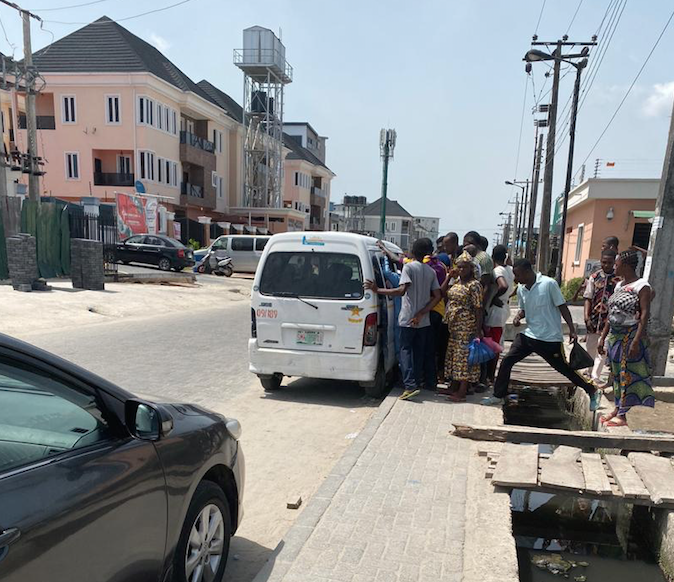
At a junction close to Prime Water View Estate, off Freedom Way, Lekki. a group of three men were seated under the shade of an umbrella. They claimed to work in the business centres around The Manor, a building where the popular visa application centre, VFS Global, is located. They also sought help, lamenting the current situation.
Advertisement
In a voice note uploaded on social media, a Lekki resident identified as Kemi Ogunleye, shared her experience with young people affected by the lockdown.
“I’m recording this voice note because I have just returned to my house. I left home about an hour ago to go and do grocery shopping for my house and buy little bit of food. I hadn’t left the house in a week,” she said.
“Frankly, I’m disturbed in my spirit. I saw as I went out, scores, scores of young boys on the streets of Lekki Phase One, where I live on Fola Osibo, On Adebayo Doherty, even extending towards Admiralty Way, pockets and pockets and pockets of young boys swarming around cars, flagging down cars, asking for money.
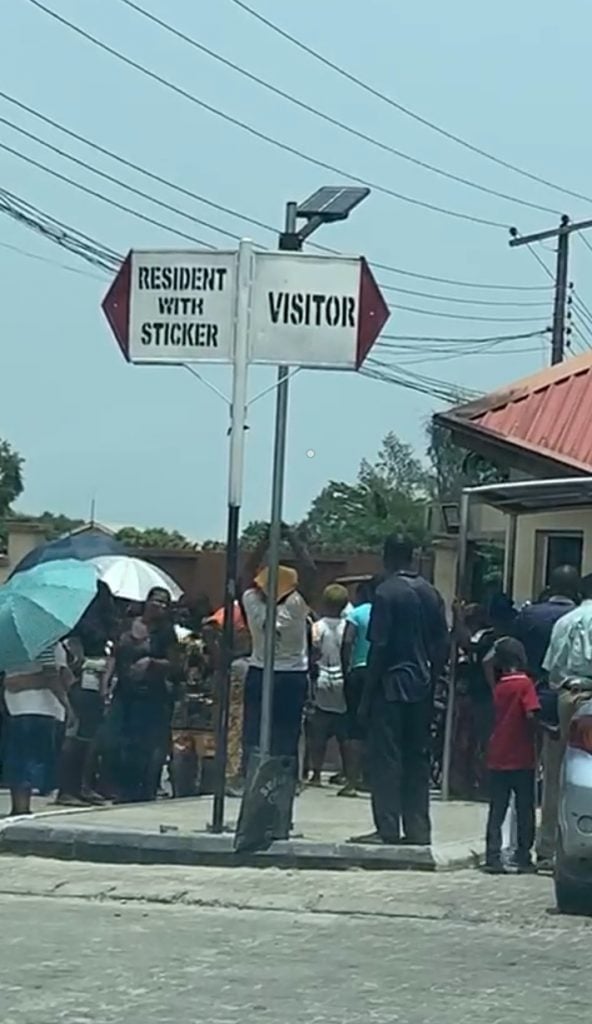
“Some of them were holding up signs, ‘we are hungry, give us food’, ‘we want money’, ‘we have no work’. As a woman driving by myself, I was alone in my car. I was scared. I felt afraid, but I also took the time to look in the eyes of these young men, these young boys and I saw fear in their own eyes too, I saw hunger and I saw desperation and it occurred to me that it is only a matter of time before they are no longer asking, they are taking forcibly.
Advertisement
“Right now they’re on the major routes. It’s only a matter of time before they fan out and come to the inner streets, before they come up to people’s gates, before they come up to people’s doorsteps and begin to demand you open up because they want to eat.”
Four days after Ogunleye shared the post, a woman narrated how some people trooped to Cooperative Villas Residential Estate at Badore, Ajah, complaining of hunger.
Lockdown: Food distribution at Kusenla road, Ikate to less privileged pic.twitter.com/yk5dgfuMgK
— Oluwatoyin Bayagbon (@tee_bayagbon) April 15, 2020
Advertisement
According to the woman whose identity was not revealed, those who trooped to the estate demanded to be fed because they do not know where their next meal would come from.
Advertisement
Individuals and groups have faulted the federal government’s response to the COVID-19 pandemic, which has laid bare, in no small terms, the deep socio-economic fault lines in the Nigerian system. But the ministry of humanitarian affairs, disaster management and social development has been vocal about the palliative measures put in place by the federal government.
While many have spotted gaps in the way and manner the government is going about distribution of palliatives, some of the beneficiaries have expressed gratitude. After extending the lockdown by two weeks, President Muhammadu Buhari ordered an expansion of the social register used in selecting beneficiaries by one million.
Advertisement
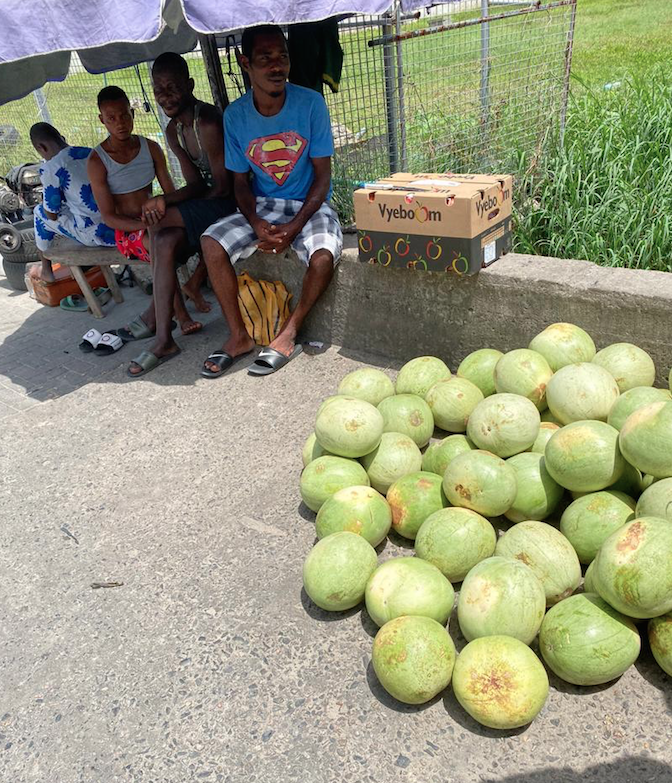
When this reporter reached out to Alkasim Abdulkadir, head of media, refugee and IDPs commission to get a sense of further relief efforts being put in place by government in light of the lockdown extension, the official promised to link her up with members of the ministry’s sub-committee on media and sensitisation for COVID-19 and the special adviser on media strategy.
As of the time this report was filed, efforts to reach out to the head of the sub-committee or the special adviser did not yield result.
Advertisement
Add a comment



